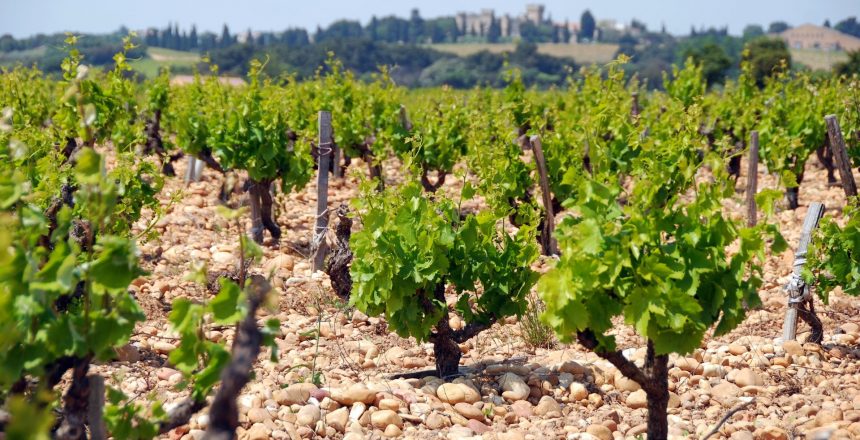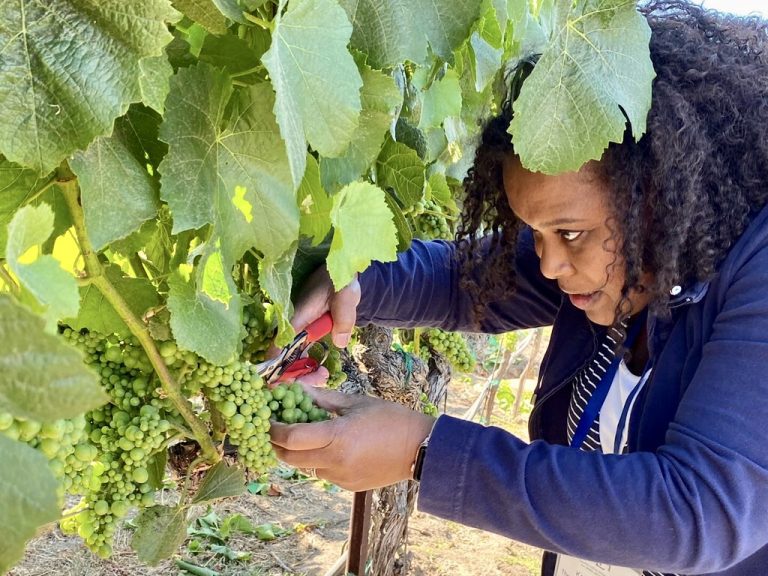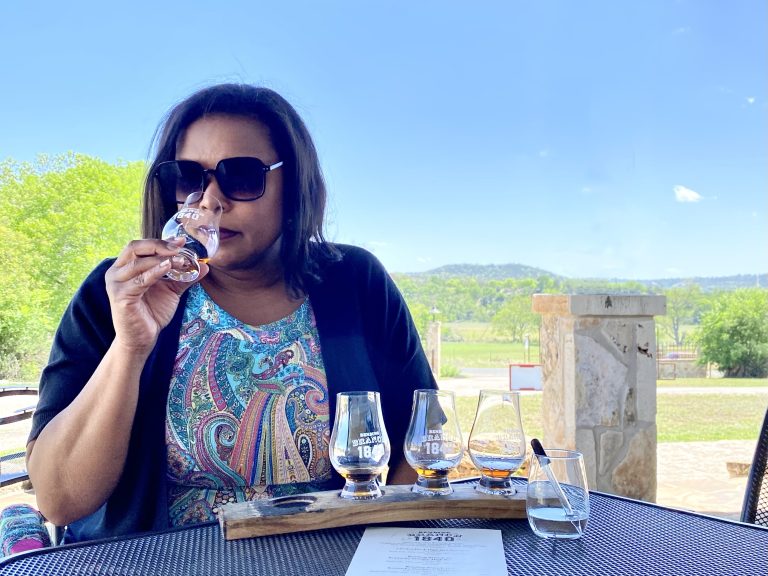“Sustainability is the new paradigm of the 21st century. Producers who do not make sustainability a core part of their business model will become progressively outdated, side-lined by consumers and, possibly, through new international policies.”
João Barroso, Sustainability Coordinator, Wines of Alentejo
With Earth Day upon us, I thought it would be fun to take a look at wine regions around the world that are doing their thing when it comes to sustainability. Despite living in Texas AND working for an oil company, I’m a green girl at heart. Seriously. Some of my favorite recent projects at the office have dealt with sustainable aviation fuel and carbon sequestration, amongst other things. But, we can talk about that some other time. Right now, we’re talking sustainability in wine.
So what does it even mean to be “sustainable?” We hear buzz words all the time – sustainable, natural, biodynamic, vegan, organic and on and on. It’s rare to pick up a product today that doesn’t claim to be one of these. I took a deep dive a couple of years ago to learn more about these terms and it was indeed eye opening. I won’t go into too much detail (check out the article if you want to know more) but at its heart, sustainability encompasses processes that protect the environment, maintain economic viability, and foster social responsibility. In other words, sustainability goes beyond being organic or biodynamic, which although noble endeavors, generally focus on the environmental prong. Things like energy and water conservation, worker protection, relationships with local communities, air and water quality, preservation of wildlife and local ecosystems, and more are all involved in sustainable wine practices.
So let’s all raise a glass to Mother Earth and drink some wine from regions that have embraced sustainability in wine.
Chile
OK, Chile is technically not a wine region, but the country’s efforts around sustainability cover all of its wine regions. While many countries and regions have implemented sustainability codes, none are quite like Chile’s. These are some of the most comprehensive sustainability efforts on the globe.
Earlier this year, I wrote an article for the Vintner Project called “The Chilean Wine Industry is Redefining What it Means to be Sustainable.” The article covered the amazing work that the Chilean wine industry is doing around sustainability. The country’s Sustainability Code employs a magnificently comprehensive approach that encompasses everything from vineyard and cellar practices to social issues and even tourism. Specifically, Chile’s Sustainability Code is divided into four areas – vineyard, winery/bottling plant, social sector, and tourism – and includes a mind-boggling 346 requirements.
To be sure, the Sustainability Code’s most remarkable feature is its section on social initiatives. Recently, Chile did a benchmark survey comparing its Sustainability Code with the codes from other other regions. Its social impact initiatives were the first items that stood out where they are more advanced and have more protections than other countries. Some of the social initiatives addressed include working life quality, employment contracts, health and safety, non-discrimination, professional development of workers through training, labor certification and scholarships, and community relations. For Chile, the hope is that at some point, concepts like ethical labor and human rights won’t be a big deal.
Chile recently implemented the fourth area of its code, which is the section devoted to sustainably in tourism. It is closely tied to the country’s social initiatives and really is unique to Chile alone. Many of the initiatives of this section are also social in nature. Ethical treatment of tourism workers, staff training, and even a focus on hiring local suppliers where possible are all covered in the tourism section of the Sustainability Code. After reading all of the things they were doing in Chile, I was all in! I had never seen such things as priorities for the wine industry. And I loved that so many producers and so many varietals were represented. Whether you want a traditional Malbec or one of my fave varietals in Cab Franc, there is no shortage of delicious wine.
Lodi, CA
Sustainability in wine is at the heart of the Lodi wine industry. For Lodi, sustainability means farming in a way that is environmentally and socially responsible while also being economically viable. In 2005, The Lodi Rules for Sustainable Winegrowing was created. The program, which encompasses over 120 sustainability practices, is California’s first, 3rd party-certified sustainable winegrowing certification program and is one of the most rigorous and comprehensive programs in the United States. The Lodi Rules recognize that responsible winegrowing requires land stewardship, water management, air quality control, and so much more. The “Rules” are divided into six categories: (1) ecosystem management, including encouraging biodiversity; (2) water management; (3) soil management, including building organic matter and maximizing water penetration; (4) pest management; (5) business management; and (6) human resources, including engaging and supporting local neighborhoods.
One great aspect of the program is the financial support that it provides to the growers. Between 2010 and 2021 alone, wineries paid over $12 million to farmers as bonuses for grapes certified under the program. These bonuses helped farmers offset some of the costs incurred by participating in the program.
While participation is optional, there are 1,302 vineyards, representing over 64,000 acres, certified in the Lodi Rules program. Vineyards in 14 different California Crush Districts, in Washington State, and even in Israel employ the rules. Those that embrace these standards will bear the Lodi Rules seal on their bottles of wine.
Alentejo, Portugal
I have so loved discovering the wines of Portugal’s Alentejo – both red and white. I still remember attending a seminar on Alentejo’s sustainability efforts several years ago and found myself in awe of all they were doing. The region is extremely warm, where temperatures can easily exceed one hundred degrees. So for them, combating issues related to global warming is essential. As they say in Alentejo – they are not preparing for climate change, they are living it!
The region is very much a pioneer in sustainability and its programs serve as a benchmark for other wine regions. With its Wines of Alentejo Sustainability Plan (“WASP”) the region is committed to the sustainability of the wine sector on three fronts – economic, social, and environmental.
Some efforts include water, disease and pest management in the vineyard, improvements in soil health, energy management in the winery, improvements in air quality and lighter, more efficient packaging. And given how hot and arid it is, water is always a concern for Alentejo. Yet there is a commitment to reduce water consumption by 20% in wineries as well as decrease the ratio of liter of water consumed per liter of wine produced.
The great thing about the Alentejo program is that they didn’t just put the information out there and expect the member wineries to implement the measure on their own. Instead, WASP provides the tools for wineries to be successful in this endeavor from the initial self-assessment to implementation, and beyond. These efforts have stimulated eco-innovation and encouraged self-improvement, ultimately resulting in job creation and increased sales of Alentejo wine. And the plan has the backing of many producers in the region. In the first three years of WASP, 56% of the PDO & PGI wines produced and 46% of planted vines were represented.
Bordeaux, France
If you pay attention to these things, then you know that Bordeaux sent shock waves through the world a few years when it expanded the permitted grape varieties for the region’s wines. In an effort to combat warming temperatures due to climate change as well as to try to protect the aromatic profile of the wines from the region, Bordeaux now permits Arinarnoa, Castete, Marselan, and Touriga Nacional in red wines and Alvarinho and Liliorila for white wines. These new varieties have the ability to deal with the stress in grapes due to rising temperatures. The addition of the new varieties came as a result of years of research spurred by concerns from winegrowers.
When it comes to sustainability, Bordeaux has taken an “all of the above” approach where producers in Bordeaux employ a number of sustainability programs. And the producers seem to be all in. Seventy-five percent of planted vineyards in Bordeaux have some sort of environmental certification with producers joining together in solidarity to commit to sustainable winemaking. In fact, by 2030, all winegrowers will have to adopt a certified environmental approach meeting the requirements of the Bordeaux AOC.
Like other regions, Bordeaux’s sustainability efforts are focused on environmental, social, and economic factors. Environmental efforts around sustainability and biodiversity include bee farming (Mr. Corkscrew is obsessed with bees and is on a mission to get a few hives for the family farm), agroforestry and a reduction of producers’ carbon footprint. Social efforts include efforts to integrate workers into local communities as well as efforts to assist people with disabilities, while economic initiatives have included efforts to support local commerce.
Various sustainability certifications include the High Environmental Value (“HVE”) certification which has requirements surrounding biodiversity, phytosanitary strategy, and fetilization methods have been embraced in the region. The Gironde area was the first region in France to be HVE-certified with nearly 400 wineries becoming certified in 2019. The Agri Confiance® program looks at preserving soil biodiversity, fighting against global warming, and reducing chemical substances. There are also several so-called natural wine organizations that require that wine grapes come from organic or biodynamic agriculture and be vinified and bottled without any added chemicals or additives. It seems the sky’s the limit.
Champagne, France
As if the champagne alone isn’t reason enough to drink bubbly (y’all know bubbly is my ‘spirit juice’!) the region’s green initiatives will really give you reason to pop some corks. Long before many others got on board, wine producers in Champagne were working to implement sustainable practices and combat climate change.
Champagne was the first wine region to implement a carbon footprint assessment, identify the main sources of emissions, and enact a plan to combat them. As a result of implementing their carbon footprint plan in 2003, the C02 emissions generated by each bottle of Champagne has decreased 20%. Champagne aims to achieve a 75% decrease by 2050.
As ridiculously large and heavy bottles are huge pet peeve for me (these people seriously ‘eff up my baggage weight at the airport) I loved that in 2010, the region actually lightened their wine bottles by 7%. This has had a direct impact on emissions generated from packaging as well as CO2 emissions from transporting the products. Specifically, this has resulted in an emissions reduction equivalent of 8,000 tons of C02 a year – the same as taking a fleet of 4,000 vehicles off the road!
Champagne has also partnered with other businesses in the region to create an industrial ecology program for waste recycling and biomass conversion. As a result of the program, 90% of waste from the region is sorted and recycled, or used to recover energy. Additionally, 100% of winemaking sub-products are used by various industries. Several sustainability practices have been targeted for the vineyards including efforts to alter vine training, improvement of soil management, and managing foliage height.
Cheers to Mother Earth and sustainability in wine.
Cover Image Courtesy of Shutterstock.






1 Comment
Lynn
•2 years ago
Excellent information, enjoyed your article! Had no idea Chile was so advanced when it comes to sustainability surrounding wine. Might be worth noting for each red and white approved grape varieties in Bordeaux, total plantings cannot exceed 5% of an estate’s total land area. And the new grapes combined cannot exceed 10% of the blend in any wine, and mention of the these grapes is not allowed anywhere on the wine label. Use of them only applies to Bordeaux and Bordeaux Supérieur AOCs at this time. I know many who think it makes sense to expand their breadth of use, time will tell!